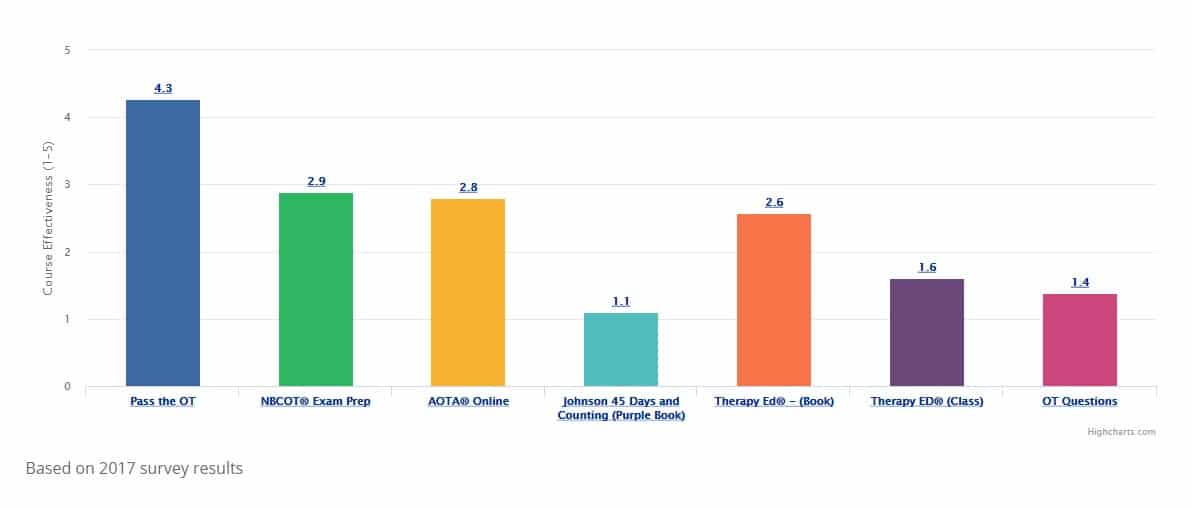

| Features | Free Trials | Others |
|---|---|---|
| Group Tutoring Sessions | 1 | Weekly |
| Customized study Schedule | ||
| Total number of questions with rationale | 100 | 2000+ |
| Easy to use charts | 30 | 114 |
| Hours of streamable audio | 30 | 50 |
| Assessment Tests | 40 | 200 |
| Highlighted material & dictation | ||
| Clinical Simulations | ||
| Comprehensive final exam | 200 | |
| 24 hr access to support team | ||
| Mini Quizzes (All topics & domains) | ||
| Proprietary study tips & Games | ||
| Accomodation Quizes | ||
| PTOT mobile app | ||
| Pass Guarantee* | ||
| Payment plans available |
An error has occurred:
You don’t have access to view this page
If you continue to experience this problem, please contact our support team at support@passtheot.com

At the end of each month, Pass the OT awards $250 to one lucky user who fills out our brief exit survey.
This survey will be sent to you after you have taken the exam.
We look forward to helping you pass the near future
Begin Program
What is included
What is not included

What is included
What is not included
| Features | Free Trials | Paid Programs |
|---|---|---|
| Group Tutoring Sessions | 1 | Weekly |
| Customized study Schedule | ||
| Total number of questions with rationale | 100 | 2000+ |
| Easy to use charts | 30 | 114 |
| Hours of streamable audio | 30 | 50 |
| Assessment Tests | 40 | 200 |
| Highlighted material & dictation | ||
| Clinical Simulations | ||
| Comprehensive final exam | 200 | |
| 24 hr access to support team | ||
| Mini Quizzes (All topics & domains) | ||
| Proprietary study tips & Games | ||
| Accomodation Quizes | ||
| PTOT mobile app | ||
| Pass Guarantee* | ||
| Payment plans available |
| Features | Free Trials | Paid Programs |
|---|---|---|
| Group Tutoring Sessions | 1 | Weekly |
| Customized study Schedule | ||
| Total number of questions with rationale | 100 | 2000+ |
| Easy to use charts | 30 | 114 |
| Hours of streamable audio | 30 | 50 |
| Assessment Tests | 40 | 200 |
| Highlighted material & dictation | ||
| Clinical Simulations | ||
| Comprehensive final exam | 200 | |
| 24 hr access to support team | ||
| Mini Quizzes (All topics & domains) | ||
| Proprietary study tips & Games | ||
| Accomodation Quizes | ||
| PTOT mobile app | ||
| Pass Guarantee* | ||
| Payment plans available |